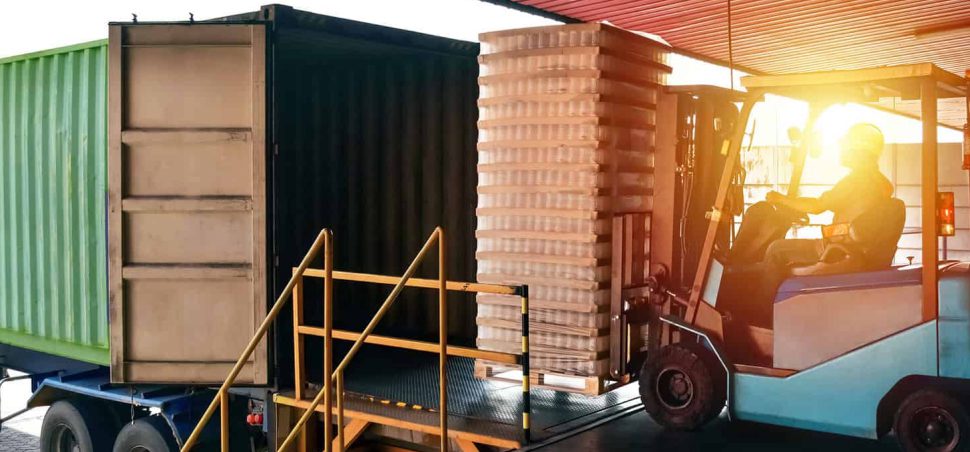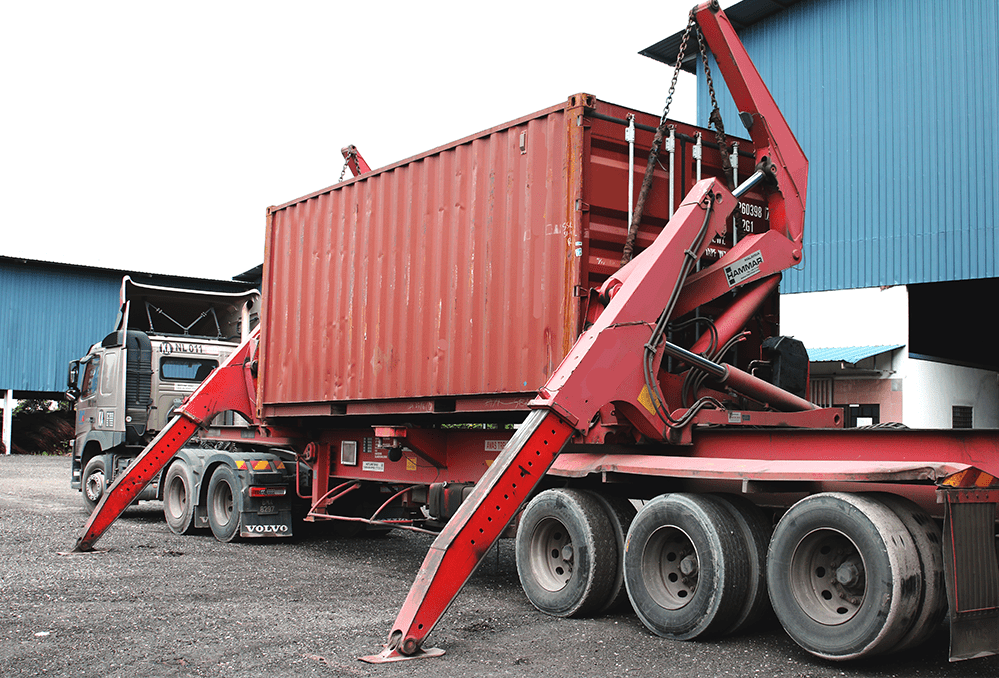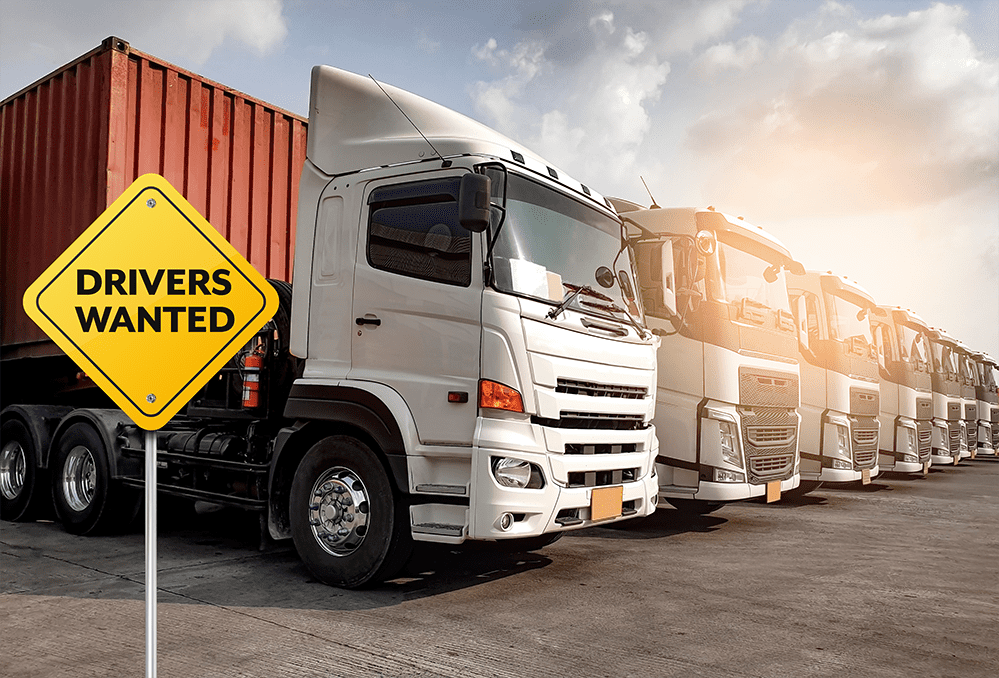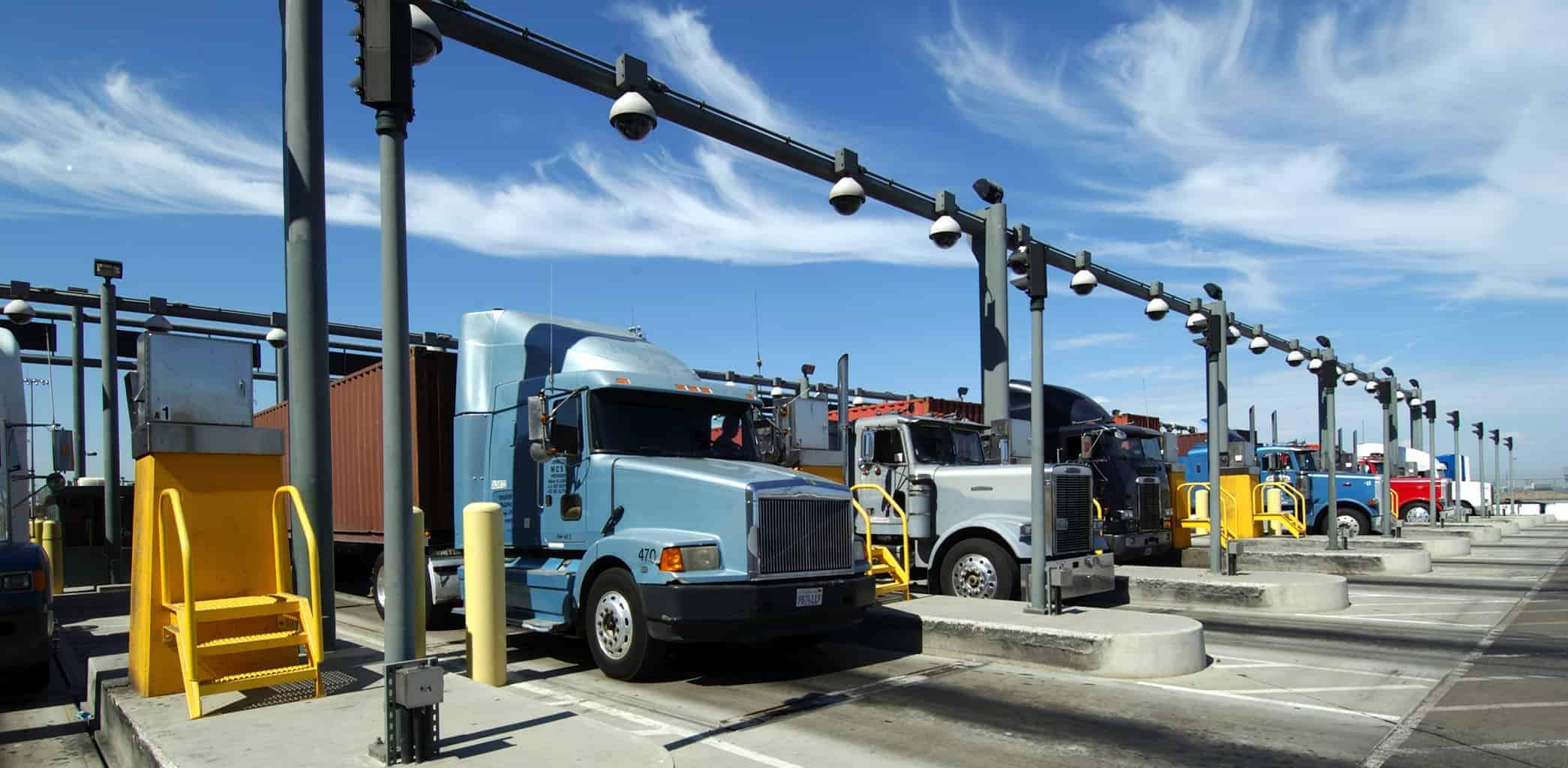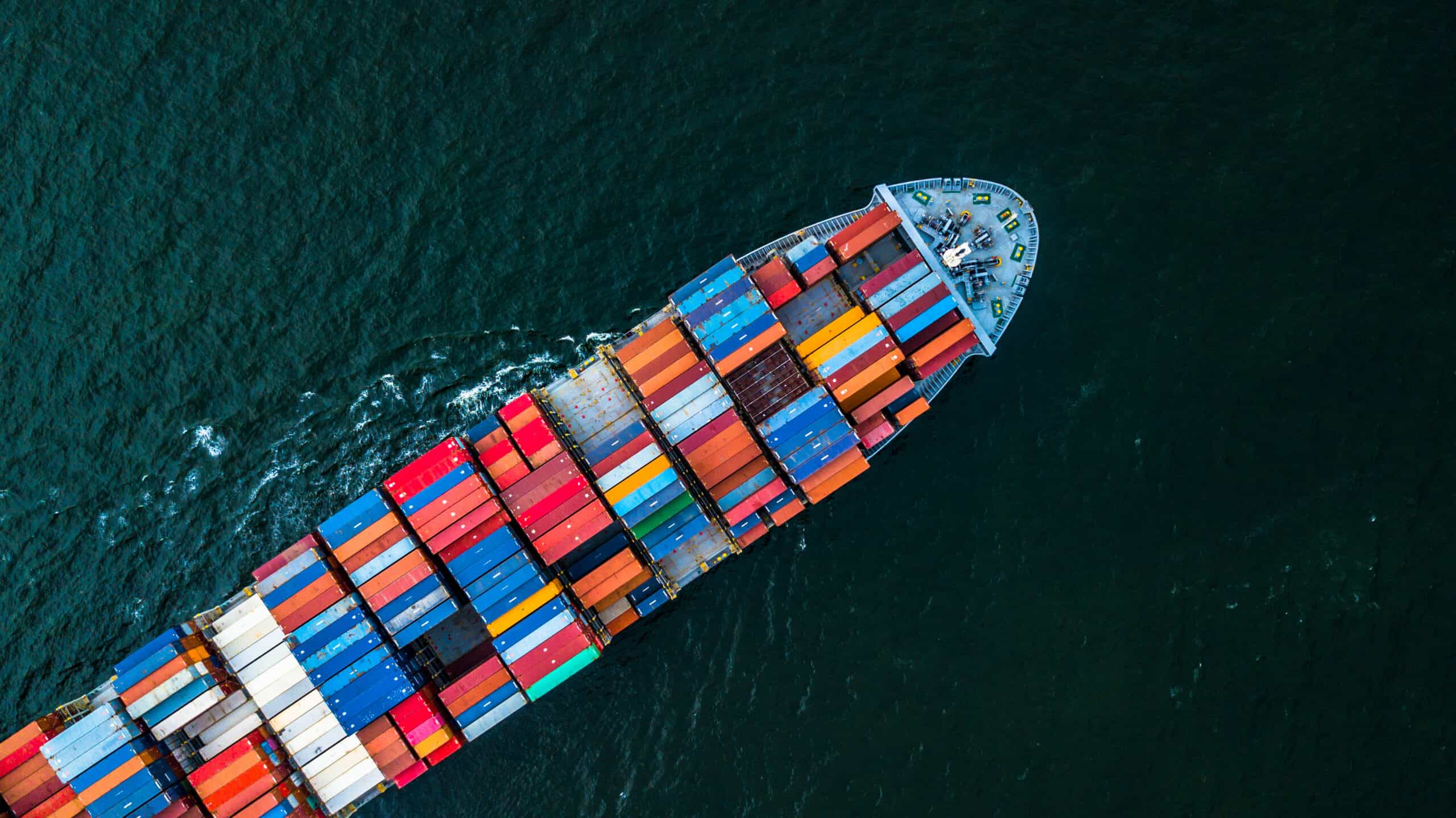It is not common for competing businesses to work in collaboration with each other. But if it could save you time, reduce your costs, and bring in more business, would you consider it? This is a question that shipping container transport operators are starting to ask themselves. As the industry embraces the benefits of digital processes and starts looking for new ways to reduce costs and disruptions in supply chains, there is an opportunity for transport businesses to adopt (and benefit from) more streamlined, strategic, and collaborative processes. Indeed, emerging technology is helping the container transport industry to drive more efficient empty container management and reduce the use of depots by offering digital container reuse (or container triangulation) as a viable alternative. However, it begs the question: is this alone sufficient? Transport operators continue to wear the cost of wasteful supply chains. Container triangulation, which is often synonymous with reusing import containers for export purposes, provides significant time and cost-saving advantages for companies that can reuse empty containers in their possession – reducing the frequent need to transit through depots. It’s a great alternative to depots, that many transport businesses are adopting. However, what if import containers don’t match their export needs? In this…
Transforming landside logistics: A case study on cost reduction and enhanced productivity with Maersk and MatchBox Exchange in Australia
For more than six years, Maersk and MatchBox Exchange have formed a successful partnership that spans multiple markets. It all began in Australia back in 2017, and since then, this collaboration has generated numerous benefits for transport companies, exporters, and importers alike. In this case study, we’ll explore how MatchBox Exchange’s platform for Exchanges and Re-Uses has significantly reduced costs and increased productivity in the Australian market. Exchanges – Western Australia (WA) Parties involved 1. Grain exporters 2. Transport companies 3. Maersk and MatchBox Exchange (MB) What is happening? Currently, we have shippers sourcing units directly from others in WA via the Exchange feature. This involves the following process: A) Export shippers (or their subcontracted transport company) make an Exchange post once they get an active release number.This then, informs others that this party is looking for X units by a specified date, dropped off to a specified location. B) Other transport companies needing to dehire these units will then offer, and subsequently, Exchange these units with the exporting party. This helps users leverage each other’s import and export mix to still cut out the empty depots in cases where they can’t make a Re-Use amongst their own business mix…
How can you grow without investing in more trucks?
Every transport company owner wishes to have their trucks running around the clock. But in reality – this is hard to achieve. Why? 1. It is difficult to find customers who will allow deliveries or pickups after-hours – many business owners find that to grow and secure new contracts, they need to invest in more trucks to service them. This is because the trucks they already have, are fully committed during normal day-time operating hours. An alternative is to subcontract the work to third parties, but this means giving away margin and control which is not ideal. 2. Empty container parks are often closed at night – so how would the transport operator return containers when the container depots are closed? 3. Drivers – Business owners have found the right customers, but they just can’t find the drivers. As far as the first two points are concerned, smart transport operators find customers that will provide night access and combine this with container re-use or exchange via the MB platform. This provides them with an instant approval, eliminating the need to engage with shipping lines that are closed. It also removes the need to return the container to the depot. It’s a great…
Sideloaders – helping you increase your productivity
MatchBox Exchange now operates across many markets in APAC and it’s interesting to see how container transporters operate differently across these markets. All face the task of having to collect/deliver both full and empty containers to/from port terminals and empty container depots. What we see is various delivery models and equipment used by different markets. In this article, we focus on the growing use of sideloaders (also referred to as swinglift trailers). A sideloader is a chassis fitted with cranes that can lift containers on and off its chassis without the need for a container forklift. In markets like Australia and New Zealand they are widely adopted, with growing use in markets like Malaysia. So what’s so good about sideloaders? a) They offer more delivery flexibility – containers can be delivered to customers before their planned unpacking/packing time (often after hours) so when unpacking/packing crews arrive, the container is on the ground ready for them. b) There is no need for the sideloader to wait for the customer to unpack/pack their containers and can quickly move on with their next job resulting in increased productivity (more deliveries). c) Containers can be unloaded or loaded onto the truck’s chassis within 15 minutes. d)…
Driver Shortage – will it ever end
There is no doubt one of the biggest impediments to growth in the container transport industry is the lack of skilled drivers. Recent COVID impacts have only made the situation worse with many transport companies struggling to meet customer demand. There is nothing more frustrating for a transport operator than to have trucks sitting idle, parked up because they simply can’t man their trucks with drivers. The container transport industry is a 24/7 industry so in a perfect world, trucking companies would have their trucks working around the clock. The work is there but the drivers are not. So, what can the industry do to solve this problem? Many companies are paying rates well above award wages and yet this is not enough to attract more drivers to the industry. It’s not uncommon these days to see drivers in the container transport industry earning over $100K a year. Companies are also investing in training, upskilling drivers, and even recruiting from people outside the industry or from other countries as they desperately try to find drivers. It’s a problem that will not be fixed anytime soon however the industry needs to invest in education and marketing to attract the next generation…
What makes customers stay loyal to a brand?
Customers are the foundation of any business. A company’s ability to attract and retain customers is crucial to its success. In this blogpost, we’ll explore the reasons behind loyalty to a company or a brand. We’ll also shed some light on why customers keep coming back to MatchBox Exchange (MB). So, why do customers stay? In one word: value. Customers want to feel like they’re getting something worth their money, whether it’s a product, a service, or good customer experience. They’ll stick with businesses that provide them with what they need. To stand out from the competition, they need to offer something of value or a unique selling proposition that their customers can’t find anywhere else. Customers are also more likely to continue doing business with a company where their needs are well looked after. Good customer service plays a big role in this. By offering a high level of support and assistance, responsiveness to customers’ needs, and quick and efficient resolution of issues – businesses can create loyal relationships that last for years. More often than not, customers also stay because of trust and familiarity. They will support a company that they know will provide quality products or services…
What’s More Important: a Quality Product or an Excellent Team? Can one do without the other?
While some might choose one over the other, both the product and team are equally important to achieve the best results. They work hand-in-hand because adopting any new product always requires a different approach. At MatchBox Exchange (MB), we are driven by a similar sense of innovation and encourage independent thinking to radically change conventional ways of empty container management. Led by experts in the fields of transportation and technology, the team can identify gaps in the container supply chain and find lasting solutions to complex challenges. The MatchBox Exchange mindset is well reflected in the digital platform itself through its simple to use user interface which makes the reuse and exchange of empty containers possible in just a few clicks. Available 24×7, its instant approval feature gives transport companies the ability to make quick decisions. Truckers and their customers benefit from reuse and exchange opportunities by saving time and increasing fleet utilisation. The platform also brings different parties together, helping transport companies work collaboratively through a central neutral open market platform that offers all members of the MatchBox Exchange network opportunities to exchange containers in a very safe and efficient way. It’s the engine that empowers collaboration between competitors in a way that creates…
Do current delivery models hamper your logistics business? Consider MatchBox Exchange
As logistics supply chains lag behind in the face of global disruptions, digital technology will play an increasingly central role in developing the industry and overcoming these challenges. But will digitising current workflows be enough or is a radical shift necessary to achieve tangible results? While most digital processes focus on improving the existing model of delivery, a few aim to fundamentally change the model altogether. One such idea is the MatchBox Exchange (MB) ‘open market’ platform that looks at the problem of returning and collecting empty shipping containers from a different perspective. What’s the inspiration behind this radical change? While heading one of Australia’s leading transport companies, Carl Marchese personally experienced the waste and cost that empty container parks add to international supply chains. Such container parks were unable to handle surging demands despite major improvements. In time, it became evident that modernising this outdated system was pointless and that reinvention was the only way forward. This thought inspired the vision for a better-faster-smarter approach. How does MatchBox Exchange work? Can it provide lasting solutions to long-standing problems? Scheduling a booking on MatchBox Exchange doesn’t require a subscription, joining fee or even monthly payments as registered users are only charged per transaction. Its 24×7 Instant Approval feature facilitates…
How to avoid the challenges and restrictions with Appointment Systems at depots, the solution is only a few clicks away!
Picture this: As a trucker, you need to return an empty container to the depot by 10am, however the only available appointment time is 2pm. Your truck has to reach the neighbouring port terminal on time to pick up another import to make the next customer delivery and a 4-hour delay is an inconvenience. In pressing situations like these, you can either send an extra truck to collect the empty container or offload the container at your trucking yard. But is there a better option at your disposal? Simple reuse or exchange would be an effective way to avoid such a problem. It is possible on MatchBox Exchange (MB), the world’s first open-market platform that allows trucking companies to reuse their empty containers or exchange them with other parties on the land-side. A reliable and secure solution, MatchBox Exchange helps trucking companies avoid the appointment system altogether as it eliminates the need to transit through empty container parks. Now, drivers can follow a schedule and reach more customers by using MB’s 24×7 Instant Approval feature to set up bookings throughout the day. Adopting the MatchBox Exchange advantage saves costs and time, improves productivity and brings more value to transport companies across markets. Moreover, fleet utilisation and operational…
The Power of Partnership: Why the world’s leading shipping lines partner with only the best
A lasting partnership begins with trust. Open communication and accessibility are equally important. But to be mutually beneficial means working together to achieve shared success. An example of one such partnership is between MatchBox Exchange and the world’s top shipping lines. MatchBox Exchange (MB) is the world’s first open market digital platform that allows transport operators, freight forwarders and shippers to reuse and exchange empty containers. A proven cloud-based SaaS platform, MatchBox Exchange delivers an end-to-end solution focusing on all aspects of customer adoption, training and support. Even its operating model is simple and effective. The team works with shipping lines on data sharing and EDI integration which it already has in place with other lines in multiple markets and languages. So why do shipping lines partner with MatchBox Exchange? (1.) MatchBox Exchange helps their shipping line partners and their customers to save on costs by removing the need for empty containers to transit through depots. (2.) Its digital solution offers 24/7 Instant Approval that saves time and improves the customer experience. (3.) Customers are more productive, enabling more triangulations and increased savings. (4.) MatchBox Exchange provides its partners with a true end-to-end solution covering all aspects of marketing, sales, training, onboarding, and customer support. A comprehensive service that ensures partners and customers maximise…


